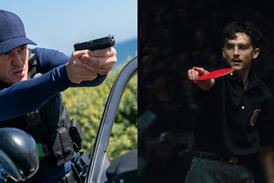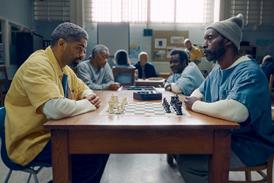- News
- Reviews
- Features
- Festivals
- Box Office
 ‘Mercy’ leads new releases at global box office with $22.8m debut; ‘Marty Supreme’ and ‘Hamnet’ expand after Oscar boosts
‘Mercy’ leads new releases at global box office with $22.8m debut; ‘Marty Supreme’ and ‘Hamnet’ expand after Oscar boosts UK-Ireland box office preview: ‘Mercy’, ‘Return To Silent Hill’ and ‘H Is For Hawk’ lead new releases
UK-Ireland box office preview: ‘Mercy’, ‘Return To Silent Hill’ and ‘H Is For Hawk’ lead new releases ‘28 Years Later: The Bone Temple’ opens with £2.4m at UK-Ireland box office; ‘The Housemaid’ stays top
‘28 Years Later: The Bone Temple’ opens with £2.4m at UK-Ireland box office; ‘The Housemaid’ stays top
- Awards
- Subscribe

Subscribe to Screen International
- Monthly print editions
- Awards season weeklies
- Stars of Tomorrow and exclusive supplements
- Over 16 years of archived content
- The Screen Podcast
- Global production
The Last Kiss (L'Ultimo Bacio)
By Lee Marshall2002-01-28T14:33:00
Dir: Gabriele Muccino. Italy. 2001. 117 mins.
SIGN IN if you have an account
Do you want to keep reading?
Register for free access to five articles a month

Subscribe today and unlock access to:
- Unlimited film & TV news, reviews and analysis on Screendaily.com
- All print and/or digital editions of Screen magazine
- Breaking news alerts sent straight to your inbox
- Digital festival and market dailies
- Weekly awards magazines
Access premium content Subscribe today
If you have an account you can SIGN IN now
Subscribe to Screen International
Screen International is the essential resource for the international film industry. Subscribe now for monthly editions, awards season weeklies, access to the Screen International archive and supplements including Stars of Tomorrow and World of Locations.
Find out moreSite powered by Webvision Cloud













